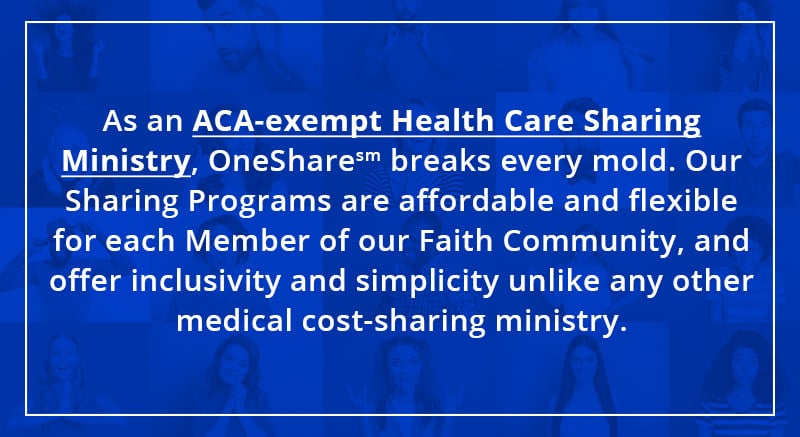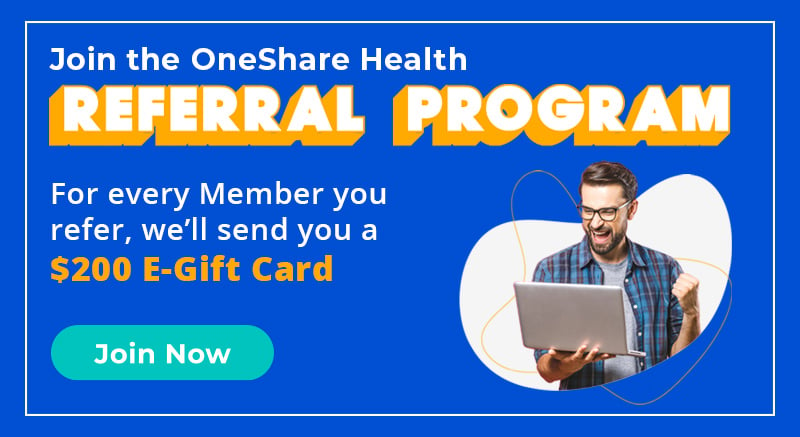Health sharing originated in Amish and Mennonite communities which would pool their money to lighten the burden of individuals’ debts. Over time this practice evolved into more formal arrangements we now know as health care sharing ministries.
In the early 1980’s, health sharing emerged as an alternative to traditional health insurance, captivating the attention of individuals seeking more affordable and flexible healthcare options and growing in popularity since. The industry has since grown to sharing approximately $3 billion in medical expenses each year. But still some who are unfamiliar with the idea have questions. So, is health sharing truly a good idea? Let’s explore the benefits and considerations associated with healthcare sharing programs. By understanding its key features, limitations, and potential advantages, you can make an informed decision regarding your healthcare needs.
Understanding Health Sharing:
- Definition: Health care sharing ministries (HCSMs) are groups whose members share religious or ethical beliefs and contribute a monthly amount that is, in turn, used to pay for the medical costs of other members.
- How Health Sharing Works: from the member perspective, the sharing process can work similarly to health insurance in that a member can go to the doctor's office and the doctor submits the bill to the HCSM. Member contributions are then distributed to pay all eligible expenses
- Eligibility: must agree to the Statement of Beliefs and agree to abide by the Member Guidelines.
Benefits of Health Sharing:
- Affordability: There is a high potential for cost savings compared to traditional insurance premiums.
- Flexibility: Members have the freedom to choose their preferred providers and enroll at any time of the year.
- Conscience: Members are able to ensure their dollars don't go to services which violate their beliefs.
- Shared Responsibility: In HCSMs, there is a sense of community and support among members to take care of one another’s needs and support in each other’s wellbeing.
Considerations and Limitations:
- Not Insurance: Health sharing is not a form of insurance, but an affordable alternative meant to provide more accessibility.
- Pre-Existing Conditions: Potential limitations or exclusions related to pre-existing conditions may apply or may require a waiting period before they are eligible.
- Sharing Guidelines: Adhering to the sharing guidelines and requirements is essential to your health and wellbeing as well as keeping costs low for everyone.
Evaluating Your Healthcare Needs:
- Personal Assessment: We encourage readers to evaluate their health, lifestyle, and budgetary requirements when making a decision about their healthcare options.
- Researching Health Sharing Programs: Once you’ve assessed your own needs, we recommend researching Health Care Sharing Ministries until you feel comfortable in your understanding.
- Consulting a Professional: It’s important to talk with someone who is already familiar with health sharing. Call (833) 550-1545 to speak with a professional about the best option for you.
While health sharing can offer compelling benefits such as affordability and flexibility, it's important to approach the decision with careful consideration. By understanding the key features of health sharing programs and evaluating your specific healthcare needs, you can determine whether health sharing is a good idea for you. Remember to consult with a professional to make an informed choice that aligns with your values and financial circumstances. Ultimately, your healthcare decisions should prioritize your well-being and peace of mind.
Disclaimer: This blog post is for informational purposes only and does not constitute financial or insurance advice. It is recommended to consult with insurance professionals or financial advisors to assess your specific needs and circumstances.










